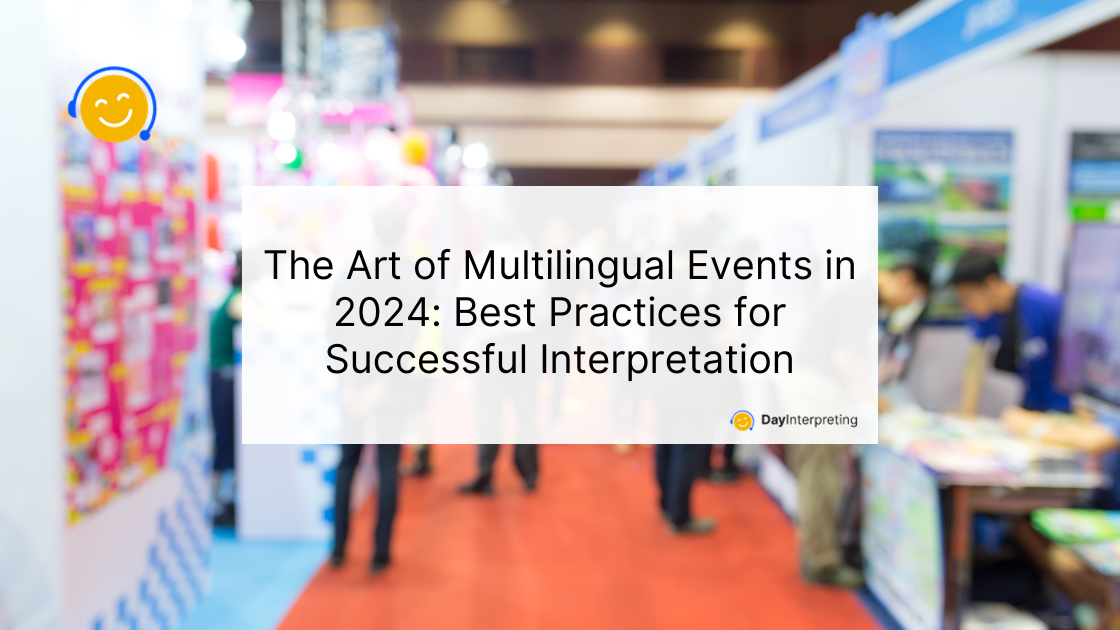The demand for multilingual events has soared in an increasingly interconnected global landscape. Whether organizing conferences, meetings, or events, effective communication across language barriers is the key to success. The pivotal role played by interpretation services cannot be overstated. In this exploration, we delve into organizing and managing multilingual events in 2024, unraveling the challenges and presenting innovative solutions to ensure seamless communication.
Understanding the Landscape of Multilingual Events in 2024
A deep understanding of the linguistic landscape is the first step in orchestrating a successful multilingual event. Identify the languages spoken by attendees and anticipate potential challenges. This groundwork lays the foundation for a tailored approach to interpretation services.
Interpreter Training: The Cornerstone of Success
Quality interpretation hinges on the proficiency of interpreters. Investing in comprehensive training programs is non-negotiable. In 2024, the bar is set high for interpreters who must be bilingual and possess a nuanced understanding of industry-specific terminologies. Organizers should collaborate with reputable training institutions to ensure interpreters are equipped to handle the complexities of the event.
Technology Integration: A Game-Changer
The evolution of technology has revolutionized interpretation services. Embrace cutting-edge tools and platforms that facilitate real-time translation. In 2024, artificial intelligence-driven language translation software is poised to take center stage, offering unparalleled accuracy and speed. Pairing skilled interpreters with advanced technology ensures a dynamic and efficient multilingual experience.
Hybrid Events: Blending the Best of Both Worlds
As the world adapts to the hybrid model of events, organizers must adeptly integrate in-person and virtual components. This calls for a seamless fusion of on-site interpreters and remote translation services. Leveraging virtual platforms enhances accessibility, enabling participants from around the globe to engage in real-time, breaking down geographical barriers.
Pre-Event Coordination: A Symphony of Planning
The success of multilingual events is predicated on meticulous planning. Establish clear communication channels with interpreters, providing them with event materials well in advance. This fosters a deeper understanding of the subject matter and allows interpreters to prepare relevant glossaries, ensuring accurate translations in real-time.
Cultural Sensitivity: Beyond Words
Effective interpretation extends beyond linguistic accuracy; it encompasses cultural sensitivity. In 2024, the importance of understanding cultural nuances cannot be overstated. Interpreters should be well-versed in the cultural contexts of the languages they are translating, ensuring that the essence and tone of the message are conveyed accurately.
Navigating Challenges: A Proactive Approach
Despite meticulous planning, challenges may arise. Equip your team with contingency plans, such as backup interpreters and alternative technology solutions. Being proactive in addressing potential issues demonstrates organizational resilience and ensures that hiccups do not derail the event’s overall success.
Post-Event Evaluation: Continuous Improvement
The conclusion of a multilingual event is not the endpoint but rather a transition to the next level of improvement. Conduct comprehensive post-event evaluations, seeking feedback from both organizers and participants. This data is invaluable in refining future events, addressing pain points, and elevating the multilingual experience.
Final Thoughts
The art of multilingual events in 2024 requires a harmonious blend of skilled interpreters, cutting-edge technology, meticulous planning, and cultural sensitivity. By investing in comprehensive training, embracing technology, and adopting a proactive approach to challenges, organizers can create an immersive and inclusive experience for participants. As the global community becomes more interconnected, mastering the art of multilingual events is not just a choice but a strategic imperative for success.





0 Comments